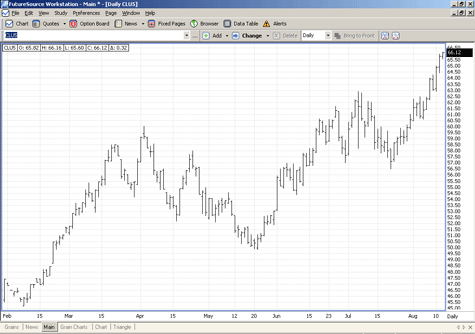
The Origin and Evolution of the Commodity Futures Market: Part I
March 9, 2024 | StoneX
The 1983, Eddie Murphy and Dan Aykroyd’s film, “Trading Places”, is a hilarious account of the ups and downs of the commodity futures market....
Read More
Energy Futures: A Look at the Crude Oil & Natural Gas Trade
March 9, 2024 | StoneX
The global energy futures marketplace facilitates the trade of a diverse array of participants. No matter if a producer is hedging systemic...
Read More
Understanding Market Correlations
March 8, 2024 | StoneX
A market correlation is a measure, statistical or observational that identifies a positive or negative link between the pricing of multiple assets....
Read More
Size Does Matter When Trading Mini Agricultural Contracts
March 8, 2024 | StoneX
Since 2007, when the Chicago Board of Trade introduced mini-sized agricultural contracts, the products have become more attractive to traders since...
Read More
The One Thing That Stops People From Becoming a Futures Trader
March 8, 2024 | StoneX
Perhaps the most influential four-letter word in the English language is fear. Fear is defined by the Oxford dictionary as “an unpleasant emotion...
Read More
Developing a Commodity Futures Trading Strategy and System
March 8, 2024 | StoneX
The futures markets are exciting and attractive to many individuals. However, potential traders are faced with the daunting task of determining how...
Read More
5 Advantages of Trading Futures
March 8, 2024 | StoneX
In comparison to other securities, futures exhibit many characteristics that offer traders unique opportunities. Whether you’re an intraday, day, or...
Read More
How Multi-Bracket Orders Can Help Optimize Performance within Futures Trading
March 8, 2024 | StoneX
Making money in futures trading hinges upon how well you walk the fine line between risk and reward. On paper, it sounds easy ― simply cut off losers...
Read More
What Is It Like Being a Trader
March 8, 2024 | StoneX
The profession of trader is unlike any other in society. The hours are unconventional, pay varies greatly, and performance is always under the...
Read More
Three Types of Technical Indicators for Day Trading
March 8, 2024 | StoneX
In the contemporary marketplace, technical analysis is the driving force behind a broad spectrum of trading strategies. Whether you’re engaging the...
Read More